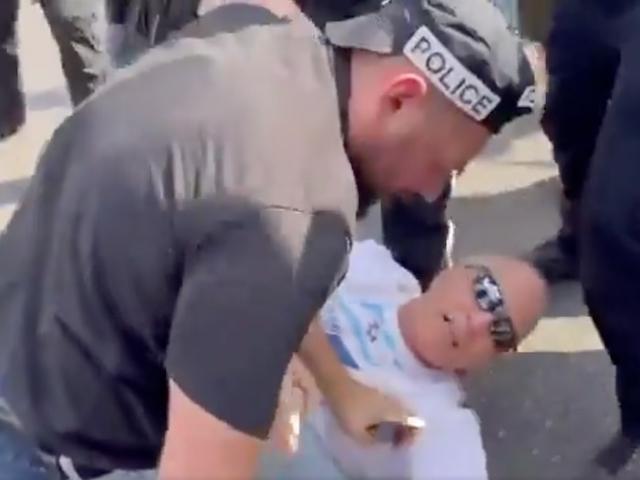Marking nine tumultuous months since the outbreak of war in Gaza, Israeli protesters took to the streets on Sunday, blocking highways across the nation in a dramatic plea for Prime Minister Benjamin Netanyahu's resignation and a cease-fire that might bring back hostages held by Hamas.
The streets were awash with tension and determination as citizens voiced their demands in what has been dubbed the "Day of Disruption." Starting at 6:29 AM, the exact time Hamas militants launched their first rockets on October 7, protesters blocked major roads and demonstrated outside the homes of Knesset members. In a poignant display near the Gaza border, 1,500 black and yellow balloons were released, symbolizing those who had been killed or abducted.
This wave of civil unrest coincides with renewed international efforts to broker a peace deal. Over the weekend, Hamas appeared to have dropped a key demand for an Israeli commitment to end the war, according to Egyptian and Hamas officials. This shift has ignited cautious optimism among mediators from the United States, Egypt, and Qatar, who have intensified their efforts to reach an agreement.
Minor scuffles occurred in Jerusalem as police removed protesters attempting to block the light rail during a day of demonstrations calling for elections and a hostage deal. pic.twitter.com/qugAUqNNZf
— CYNN (@CYNN_Official) July 7, 2024
The conflict, ignited by a cross-border attack by the Palestinian militant group on October 7, has left a devastating toll in its wake: 1,200 Israelis killed, 250 taken hostage, and a retaliatory Israeli offensive that has claimed over 38,000 Palestinian lives, according to the Gaza Health Ministry, which does not distinguish between combatants and civilians.
As of Sunday, around 120 hostages remain captive after more than 100 were released in a cease-fire deal last November. Israel has confirmed the deaths of more than 40 of these hostages and fears that number may rise as the conflict drags on.
Prime Minister Netanyahu has expressed a willingness to pause the war as part of a hostage deal but remains resolute in his goal to dismantle Hamas' military and governing structures and secure the release of all hostages.
Meanwhile, the violence continues unabated in Gaza. Overnight Israeli strikes killed nine Palestinians, including six in central Gaza when a house was hit in Zawaida, and another three in a house west of Gaza City. On Saturday, an Israeli airstrike killed at least 16 people and wounded 50 others in a school-turned-shelter in the Nuseirat refugee camp. The Israeli military insists it targets Hamas militants and takes measures to minimize civilian casualties.
Hundreds of protesters began blocking junctions and highways in various parts of Israel on Sunday morning, demanding early elections and the immediate release of hostages from the Gaza Strip.
— War Intel (@warintel4u) July 7, 2024
Mass rallies are expected in Tel Aviv, Jerusalem, Haifa, and dozens of other cities.… pic.twitter.com/tEMhx6ryL5
The conflict has also seen near-daily clashes between Hezbollah and Israeli forces, with the potential to escalate into a broader regional war. On Sunday, Hezbollah launched a barrage of over 40 missiles into northern Israel, wounding an Israeli man in Kfar Zeitim near Tiberias. This came after an Israeli airstrike killed a Hezbollah air defense engineer the previous day.
Mediators are pushing for a phased deal proposed by Washington, which would begin with a six-week cease-fire. This would see the release of older, sick, and female hostages in exchange for hundreds of Palestinian prisoners, an Israeli withdrawal from densely populated Gaza areas, and the return of displaced Palestinians to their homes in northern Gaza.
Despite these diplomatic efforts, war-weary Palestinians in Gaza remain skeptical. Heba Radi, a displaced mother of six sheltering in Deir al-Balah, expressed her despair: “We have lived nine months of suffering. The cease-fire has become a distant dream.” Similarly, Zakia Hasanein, an 80-year-old woman also sheltering in Deir al-Balah, pleaded for a cease-fire, saying they “lived like the dead.”
The Israel-Hamas war has wreaked widespread destruction in Gaza, exacerbating humanitarian crises and sparking fears of famine. The top U.N. court has warned of a "plausible risk of genocide" in Gaza, a charge that Israel strongly denies.
As the war marks its ninth month, the path to peace remains fraught with challenges, but the voices of protest and the efforts of international mediators offer a glimmer of hope in a landscape marred by conflict and despair.


